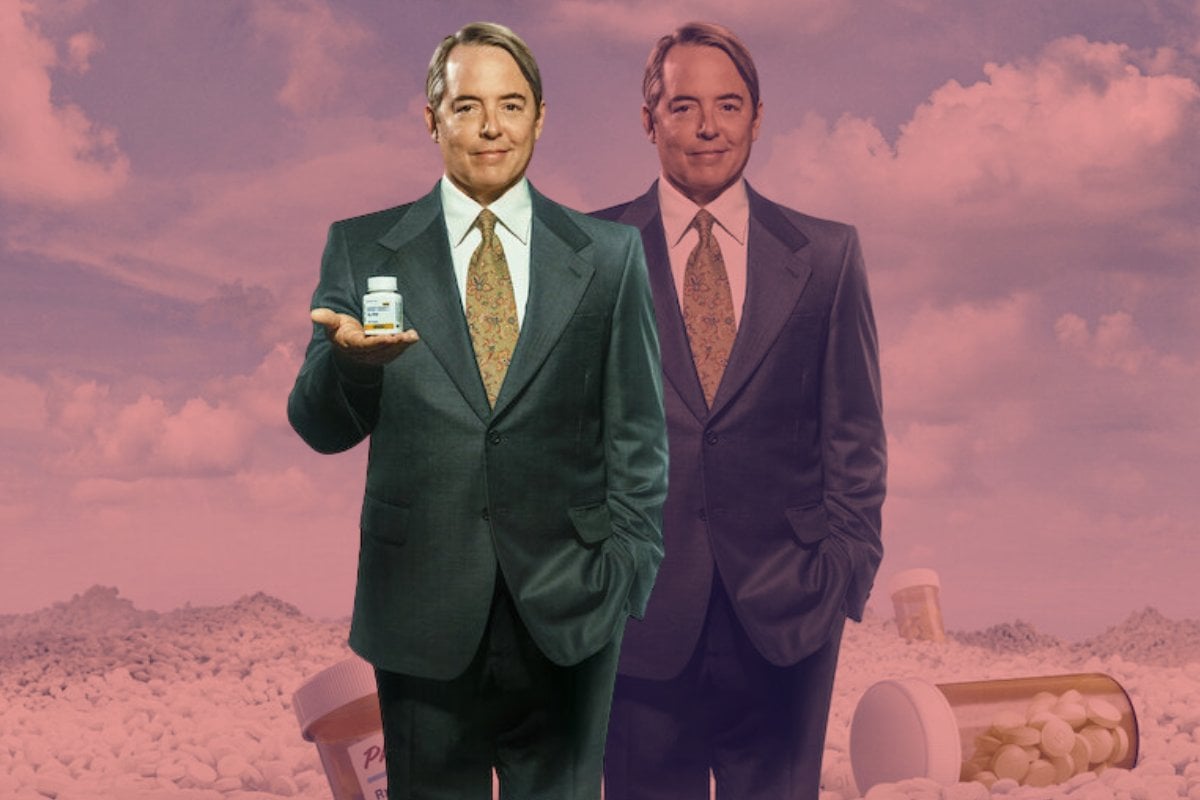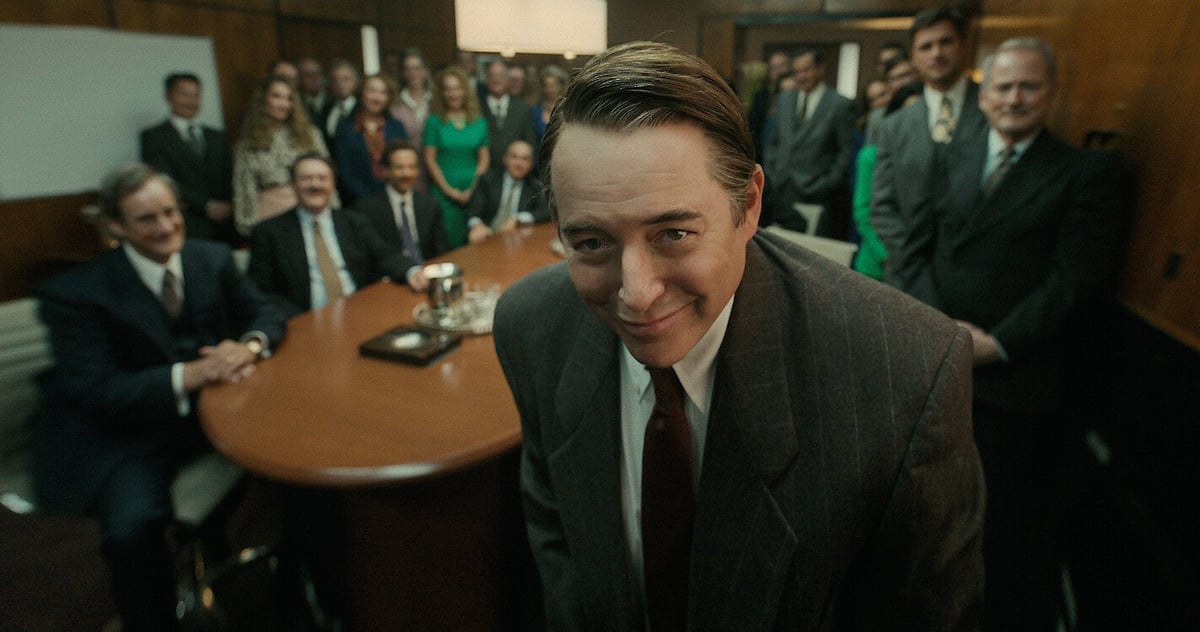
Netflix's Painkiller is the latest true-crime-story-turned-series that has left viewers horrified.
The limited series explores the causes and consequences of America's opioid epidemic in a dramatised retelling starring Uzo Aduba and Matthew Broderick.
The six-episode series is based on the book Pain Killer by Barry Meier, along with Patrick Radden Keefe's New Yorker article 'The Family That Built an Empire of Pain' and his follow-up book, Pain Killer: An Empire of Deceit and the Origin of America’s Opioid Epidemic.
Watch the trailer for Painkiller here. Post continues after video.
Keefe's work (and the show) predominantly focuses on the rise of OxyContin – a drug manufactured by the company Purdue Pharma, which was owned by the very wealthy Sackler family.
And while some of the 'micro' storylines in the series are fictionalised, the powerful real-life accounts of people who have lost loved ones to opioid addiction act as a stark reminder that the epidemic, and its impact, are very real.


Top Comments